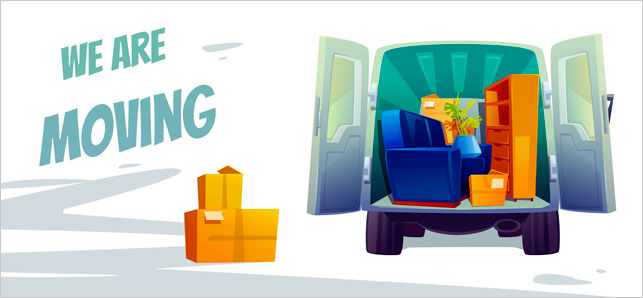Seniors should downsize their living for a myriad of reasons, but the most important reason is for their happiness and security.
As we age, we often start considering the things that we need and those that we do not. Downsizing becomes a consideration for many aging adults. Often, seniors have fewer people living at home, fewer responsibilities, and limited income resources. While home upkeep, vehicle maintenance, and yard work are responsibilities, they are often no longer working outside the home and do not have children to nurture each day.
Seniors might think about downsizing to save money, prepare for the need for caregivers, create room for equipment or live-in help, make maintenance more manageable, have more freedom, and make possible other reasons.
Table of Contents
Downsizing can be beneficial to seniors and their communities
Downsizing can be both beneficial and frustrating for seniors. While many seniors look forward to allowing them to do more things, they often also want to stay in the homes that they built. If you find yourself in that situation, you might consider slowly downsizing rather than moving into a smaller house or retirement home at once.
Decluttering and getting rid of things that you no longer need can be liberating and allow you more freedom to do more with your life. Consider these reasons for downsizing.
- Saving money – This is always a good thing to do. If you have a car payment but are retired and seldom drive, selling your car and buying something inexpensive that you can pay for quickly might be a better option. This can save you money on car payments, insurance, and maintenance. A reliable car is still a good idea if you are still driving, but it does not need to be brand new. If you no longer have children at home, you may be able to also do with smaller appliances that use less electricity. Consider downsizing the eight-quart slow cooker for a smaller one designed for one or two people.
- Preparing for live-in caregivers – If you do not want to move out of your home but you feel that you will need caregivers in the future, downsizing the things in your home can make room for an added person staying with you. Selling old furniture that is not used, giving it away to family or friends, or donating it to a community agency can help you make room for a potential caregiver. You may already have a spare bedroom, but you feel it needs decluttering. Take the time to do it while you can.
- Preparing for equipment – If you are planning to keep your home and hire caregivers or have a loved one live with you, downsizing furniture and other unneeded items can allow you to make room for equipment. This may include walkers, shower seats, oxygen tanks, and other durable medical equipment you may need as you age. Doing this when you are in shape to do it may make you feel better about the future.
- Making maintenance manageable – A less expensive car, less furniture to dust, or a smaller/no yard means it takes far less time to maintain the things that you own. Moving into a retirement community may mean that you no longer have to do yard work, maintain the grounds, or change light bulbs. It may just mean you live in a smaller community, and there are fewer grounds to keep, but you can feel comforted in knowing that the difficult things can be minimized.
- Having more freedom – If you do decide to sell your home and move into an RV, stay with friends, or find an assisted living community, you may feel freer to do the things that you want to do. Living in a small RV makes clutter a terrible idea, so you will want to get rid of all of the things that you can. Even if you keep your home and travel anyway, downsizing will allow you to worry less about the things you are leaving behind. You have fewer things to maintain, and you could give prized possessions to your friends and loved ones.
- Feeling happiness – If you are miserable living in a big house, there is no reason to stay. Many retirees (couples and individuals) report not wanting to stay in their homes. They feel it is time to move on. If this is the case, do it. There is no reason to be miserable.
- Keeping health – If you have health concerns and are not particularly tied to your home, consider an assisted living or retirement community. You can have round-the-clock caregivers and your freedom in many places. Staying at home can compromise your safety as you age if your health is failing.
- Spreading love – Donating to your community can give you a sense of happiness and well-being. It can also help families in need. If you are not using the blender, a new mom may be able to use it to make baby food for her baby or smoothies for her. A single dad starting over after a housefire may need sheets, blankets, and bathroom décor. You have the opportunity to help these families and more by getting rid of things.
- Making money – If your things are in good condition, selling them can make you some money to spend on the things you like!
- Paying for an adjusted living – If you sell your home and make a little money, it can fund those vacations, the retirement home, or other things that may not be possible on a limited income.
- Easing cleanup – Even if you keep your home, getting rid of things means that you can spend less time cleaning and more time with your friends and family.
- Deciding distribution – You get to choose what to do with your things instead of your family. After you pass, your family often has the burden of going through your stuff and deciding what to keep or donate. By decluttering and downsizing, you eliminate that need.
You can choose what goes, what stays, and how to distribute the rest. If you want your daughter to have grandma’s antique sewing machine and your son to have grandpa’s tool kit, there is no fuss or fight. Just give things to those you want to have them. They also do not have to worry if you will be upset if items get donated. You just did it yourself.

How do I downsize?
There are many ways to downsize, and you must decide what is right for you. Below is a list of things that can help seniors to declutter:
- Begin by decluttering. Decide what you no longer want or need and get rid of things from there. My Move suggests making a yes and no pile—no maybes.1 Just keep the stuff you need and get rid of the rest.
- Give your children, friends, or family members the things they want to remember you by. Do not wait until you die, just let them take the stuff now. You will be thought of often while you are still living, and it gives you a chance to bond with family members again.
- Take pictures of things that you used to love but just do not have time to care for any longer and donate the item. This will allow you to see things still, but someone else can enjoy them.
- Life Storage Blog2 suggests that readers should consider the new space. Even if you are not moving immediately, you can think about where you plan to move. Will you be in an independent living facility, nursing home, or assisted living space? Will you have one room or five? Reducing living space needs is challenging, no matter when you do it.
- Sell your large home and purchase a smaller house or move into an apartment or independent community. If you had a three-bedroom home but it is just you and your spouse now, consider a one or two-bedroom place.
- Donate things that are still in good shape. Goodwill and local community outreach places will often take gently used household goods.
- Research new living situations. Find a smaller place in a nearby town or an apartment in the city near family members. Decluttering and downsizing do not have to mean giving up happiness. Find your space.
Where would I go?
Deciding where to go is never easy. You have to make choices and think about all of the options you have. “Where should I go” lends itself to other questions. Let’s take a look at each issue related to this one before making a decision:
- Do you want to live alone or with family or friends? Deciding your living arrangement is essential. If you’re going to live with your daughter but you currently live 40 miles away, you need to consider how to move your things and what you will move. If you live 400 miles away, you may have to consider how to get there. Travel and moving expenses change drastically if you need to go long distances. Also, living with someone means that you keep fewer items of your own. You won’t be taking large furniture unless your friend or a family member needs it.
- Do you want to stay in your current city? If you moved there for a job or spouse’s job but you miss your hometown, consider moving back. Look at what is available in your target city. Consider whether you can afford to live there. Your answer could also be a completely different city that you just love. If you vacationed in the Catskills, you might want to move there. Consider what you want. Do not let your wants outweigh your needs, though. You must be able to afford wherever you go.
- How is your health? Moving 4000 miles from your current city with friends and family might not be the best idea if your health is rapidly declining. Likewise, if you are perfectly healthy but unhappy in your location, there is no reason to stay there. Consider your health and projected health concerns. Of course, no one can predict the future, but you can foresee some things.
- What do you need? Do you need occasional help, full-time care, or no assistance at this time? If you do not need help, you will be freer to make the choices that you want. However, if your health or abilities dictate your capacity to live alone, you may consider a different arrangement.
- Do you have someone who can take you in? If you want to avoid a facility but need help, can your family members accommodate your needs? If they can now but your health declines to the point that they cannot, do you have a backup plan? Planning for the future is invaluable. It will help you consider what you need to do before you are unable to make that decision.
- Will I be able to afford to live alone or in a facility? If you have insurance or income, consider what you need to survive. Can you live on your income? If you cannot, then you cannot stay where you are.
- Consider the cost of your city. If your current city has high property taxes, cost of living expenses, and is short on housing, you might consider moving to a smaller neighboring city where you can get similar accommodations for less money.

When do I do this?
Many websites and experts disagree on when a person should downsize. After 553 says that retirees should do this at 64, but many people are not even retiring this early these days. Consider a few things before deciding when:
- When are you retiring? It does not make sense to get a whole new job today and move to a new city if you are just going to retire in six months. You also should not spend an eternity in a home after retirement if you are unhappy.
- What is your living situation like? If your spouse is still alive and you are happy and healthy, retirement might be a good idea, but downsizing might not be necessary.
- When do you want to downsize? If you feel that your home is too large without children, then, by all means, downsize. However, if you have a full house most of the time, then don’t do it.
- How is your health? If your health is failing and you are unable to take care of things like you used to, then it may be time to consider downsizing. Likewise, if you are in good health, you can choose to wait. Don’t wait until you are too weak, tired, or disabled to try to deal with your things. You will not be able to do it then.
- Are you ready now? Do you want to wait? Why? Consider what you want. Do not downsize because a website or article tells you to, but don’t wait because you are afraid to let go of your home.
- Are you financially stable? Can you afford to stay in your current home? If not, you may want to consider downsizing now. If you can, you could stay a little longer. Did you plan to keep your home after retirement? Is there enough money to do that?
What if I cannot do this alone?
If your health prevents you from sorting, moving, and planning alone, recruit help from friends, family, and neighbors. You may also consider hiring a company that specializes in helping seniors move from their homes into a facility. You can also see a therapist or doctor if your emotional health is at stake from making this change.

Here’s a quick list of people you can recruit for help:
- Bring your children to help you declutter. Ask if they want certain things that you own. Is there a picture, figurine, or other items they have always wanted? Let them take it now.
- Call your church and offer a donation to the youth to help you move furniture, clean, and haul off the trash.
- Call a moving company that specializes in senior needs.
- Call a therapist to talk about the changes.
- If your spouse is still alive, talk with them about how this change feels. Feelings can be positive and negative. It is okay to have the feeling that you do.
- Some local thrift stores will come to pick up donated items. Call to see who can pick up the things you want to discard.
What do I need to keep?
You should keep anything that you will use or enjoy. If you are no longer using grandmother’s china, give it to a daughter, son, niece, nephew, or grandchild. Your grandmother would love for it to get some use.
If you use your slow cooker often, but you never touch your pressure cooker, you can just get rid of the latter. If you are moving, consider what will be available in your new place. Even if you love that slow cooker, it might be impractical in an RV if it is large.
Do not keep the first cup you bought as a couple if it is chipped and broken and will have no place to stay. Take a photo and get rid of it.
Necessities emotionally and physically are all you need to keep. You should keep the things you want, but make sure that they have a function as well.
Last thoughts
Try to consider why you are downsizing. Where will you go, what will you do and why do you want to do that? Downsizing is an incredibly personal decision. It can be excellent for your mental and physical health, but it will also be stressful. Think about everything carefully before downsizing.
Downsizing is beneficial for your health, community, and peace of mind if done correctly. It is quite damaging if you do it for the wrong reasons or in a hurry.
Related questions
Is it worth it to downsize a house?
The value of downsizing is different for different people. Some may find that they love it and that they enjoy the freedom. Others feel that they cannot handle the change. Keep in mind that downsizing is not just getting a smaller house. It also means getting rid of stuff and decluttering your life.
If you like your 400 cat figurines, adjusting to life without them can be more complicated than you realized. You can also declutter first. Then you may decide the house is too big for you and that you do not need so much space. Each person is different and will have different preferences.
Do most retirees downsize?
Everyone is different. Some retirees do not feel the need to downsize, and others do. It just depends on what their needs are. Consider why you are thinking about downsizing and what the benefits may be. Decluttering may be all you do for now, but you could start planning for reduction, even if you wait to move.
As people age, however, it often becomes necessary if their health begins to fail. You do not want to wait until you cannot effectively downsize to make that choice, though. Start downsizing today. Decluttering is always good.
How do you adjust to downsizing?
Downsizing is different for everyone. You must decide what you want and how to do to keep the things that make you happy while living a life you can manage. Adjusting to downsizing and adjusting how you downsize will also be different. Some people will adjust well while others will not.
Sometimes you may find you need some mental health support to get through it. It is okay if you do. Find a friend or counselor who specializes in aging to help you through it.
How do you know it’s time to downsize?
Every person is different. One sign is that you suddenly start feeling overwhelmed or that your space is too big for you. Preparing for life changes is also an excellent time to start. Thinking about downsizing is often a sign to start ridding your life of complexities.
References
1 “Senior Friendly Guide to Downsizing” My Move. 10 May 2018. https://www.mymove.com/moving/guides/senior-guide-downsizing/ Accessed 6 Jun 2020.
2 Lauren Thomann. “Downsizing for Seniors An Essential Checklist.” 10 Jan 2019. https://www.lifestorage.com/blog/moving/downsizing-for-seniors/ Accessed 6 Jun 2020.
3 Sue Sveum. “When Is It Time to Downsize Your Home? Maybe Earlier Than You Think” After55.com 18 Sept. 2017. https://www.after55.com/blog/downsizing-your-home-when-time/ Accessed 6 Jun 2020.
